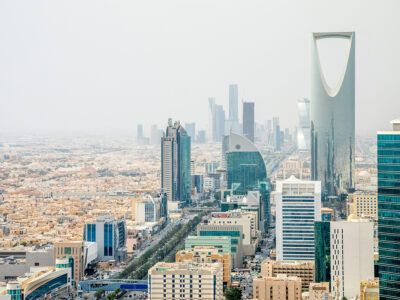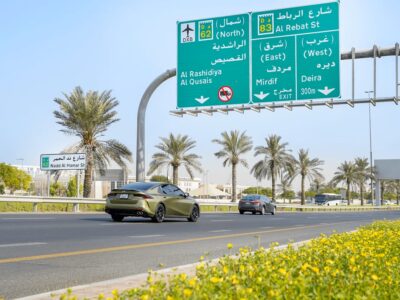Qatar’s planned $88bn infrastructure spend is beginning to
translate to contract wins on the ground, as the Gulf state prepares to host
the 2022 World Cup, said the COO of Al Jaber Group.
The wealthy emirate has unveiled an unprecedented spending
plan to build the stadiums, hotels, bridges and railways needed for the
tournament, the world’s most-watched sporting event.
“There are projects now coming on the table, it’s obvious from the
numbers,” Fatima Al Jaber said on the sidelines of the first Arabian Business
Women’s Forum.
“These projects need planning and design time, so when they are
ready I think the [bids] will be issued. More infrastructure and buildings are
happening now [rather than stadiums].”
Qatar has jostled with Saudi Arabia for the title of the
Gulf’s most lucrative construction market, after the global financial crisis
brought a swift end to Dubai’s building boom.
The Gulf’s building hub suspended or scrapped $170bn worth of
construction projects in the wake of the downturn, according to Citigroup,
forcing UAE contractors to expand into new markets in a bid to source new
revenues.
Abu Dhabi-based Al Jaber Group, one of the UAE’s largest
conglomerates, is currently in talks to restructure more than $1bn in debt.
Saudi Arabia, the wealthiest GCC state, has unveiled a
$130bn spending plan to build homes and infrastructure and address unemployment
of 10 percent.
“Saudi is definitely a big market. I think in the next three
years [Saudi will have the most projects],” said Al Jaber. “They have to
upgrade their infrastructure because nothing has been done for 40 years.”
Contractors have previously complained of bureaucratic difficulties
linked to working in the Gulf kingdom, a situation likely to worsen after new
curbs on foreign workers were unveiled earlier this year.
“Saudi is always a
difficult market, so I don’t think we should change our expectations,” she
said. “The good thing is that for GCC companies it may be easier than for
others.
“What you have to understand is that Saudi needs to protect its
environment and its locals and this is part of the nationalization process.”
Closer to home, oil-rich Abu Dhabi has seen a scaling-back of its
planned 2030 development plan, stretching out the completion dates of major
infrastructure projects.
The emirate has delayed the delivery of its planned Louvre
and Guggenheim museums, in a sign it may be feeling the pinch of funding its
$500bn project plan.
“There is a slowdown but I think it will pick up in 2012,” Al
Jaber said. “There are a lot of projects that have been put on hold but
definitely they are part of the development plan. So they need to go on.
“With hotels there will be a slowdown because we have enough now
and the environment changed but there will be other developments happening. In
the Western region we need to build houses, we need to build the railway, we
need to build more road networks.”








